What is alchemy, the ancient art of transformation?
Alchemy, or high chemistry, and chemistry par excellence, which is also called Hermetic philosophy, is an exceptional branch of chemistry that deals with the art of transforming metals.
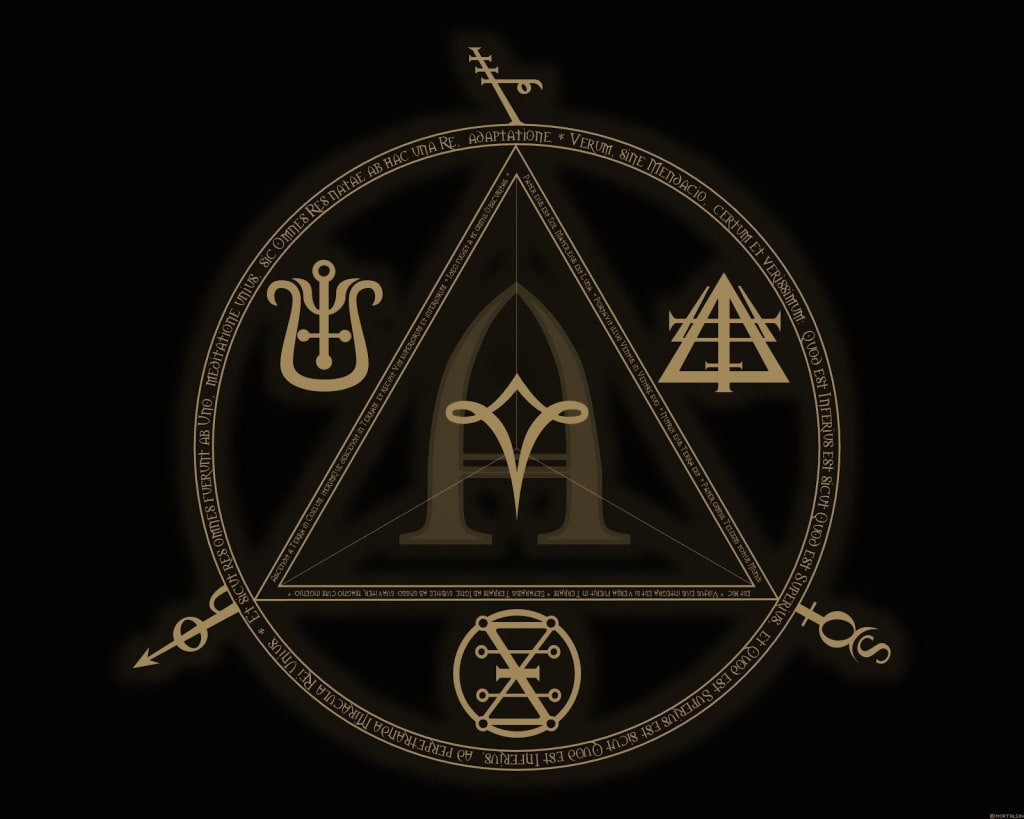
The mad hope of obtaining gold was in vogue among the Chinese long before the first notions of the matter existed in Europe.
They speak in their works, in magical terms, of the golden seed, and promise to extract from their crucibles not only gold but also a universal remedy, which will give those who will use it a kind of immortality.
The secrets of alchemy
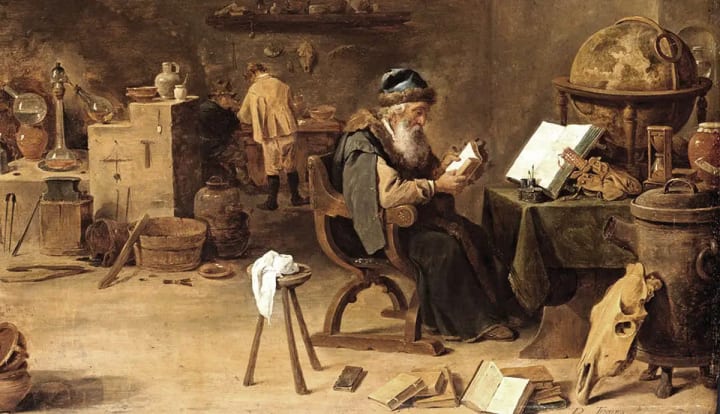
Saint Zosimus (who was Pope between 417–418 A.D.) is one of the first to write about the art of making gold and silver or how to obtain the philosopher's stone.
This stone is a powder or liquor obtained from the fusion of several metals, under a favorable constellation.
The English historian Edward Gibbon noted that the ancients did not know alchemy, although Pliny writes that the emperor Caligula tried to obtain gold with the help of preparation of arsenic, but abandoned the project because the expense exceeded the profit.
The partisans of this science claim that the Egyptians knew all the secrets in this field.
Cottie Arthur Burland (1905–1983), English researcher and author, wondered in The Arts of the Alchemist (1967):
Was the alchemist a philosopher, deep in mysterious studies in which he found the secrets of transmutation? Or just a charlatan engaged in some kind of unusually fantastic chatter? Was he simply a forerunner of today's scholars? Or may it have occult knowledge, which we cannot hope to attain in our materialistic environment?
That such questions can be asked by an authority on the subject is itself an indication of how little is known about alchemy. That the alchemist was not "just a charlatan" is clear: no one would apply this qualification to Newton or Boyle, both fascinated by the subject.
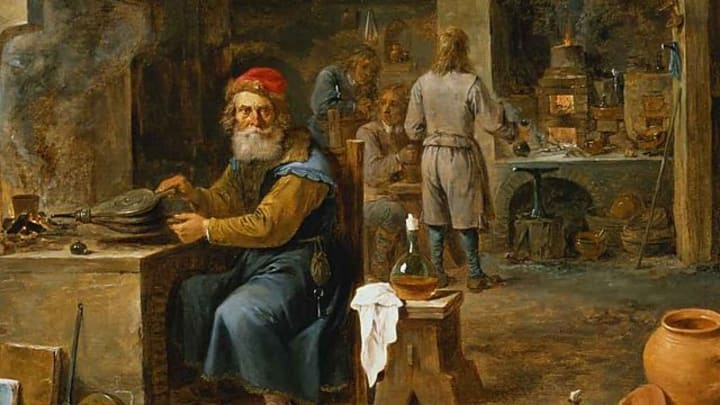
It seems likely that some alchemists have found methods of tapping into paranormal sources in the course of their research in physics and chemistry - just as some physicists have discovered that a small number of metapsychics can tap into paranormal forces to bend metal, but it must be admitted that we have no evidence based on which we can give a clear and definite picture of what the alchemists were doing.
Alchemy, like the tendency to Nirvana, cannot be studied in isolation, as an exact or even non-existent science; it demands subjective, even emotional involvement of the one who studies it.
Probably the only way in which alchemy can be profitably explored is the path created by Carl Gustav Jung (1875–1961) - Swiss physician, psychologist, and psychiatrist, the founder of analytical psychology - and described in his autobiography Memories, Dreams, Reflections.
Deciphering the old texts with difficulty, he considered some of them "blatant nonsense"; others, however, intrigued him, and eventually he began to realize the curious affinities with his analytical psychology:
The alchemists' experiences were, in a sense, my experiences, and their world was my world. When I thought about those old texts, everything fell into place: the fantastic images, the empirical material I had gathered in my practice, and the conclusions I had drawn from it. Now I began to understand what those met a psychic matter meant, viewed from a historical perspective. My understanding of their mysterious character, which had begun with the investigation of myths, deepened. Primal images and the nature of the archetype were central to my research, and it became clear to me that without history there could be no psychology, and certainly no psychology of the subconscious.
The Forbidden Science of Antiquity
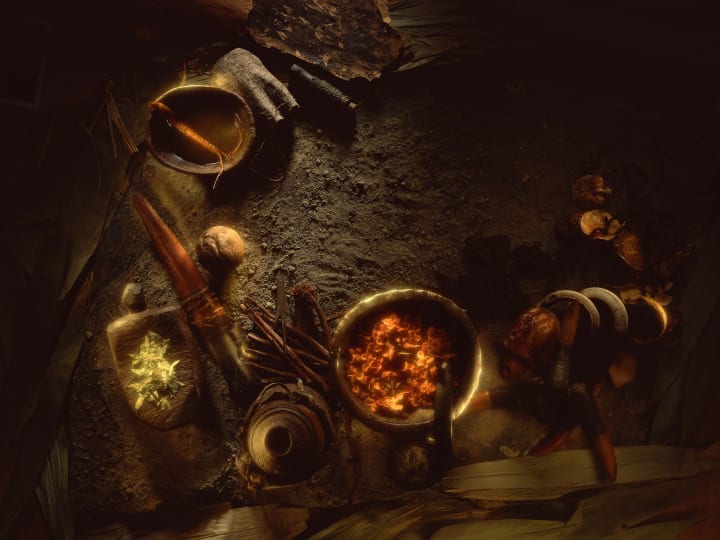
It seems that alchemy is an invention of the Arabs, who had a large number of partisans of this practice, in whose furnaces nothing but ashes were found.
That precious philosopher's stone also called the universal elixir, water of the sun, which was so sought after but never discovered was supposed to bring to the one who will have the happiness to discover unfathomable riches, ever-blooming health, a life free from all diseases, even immortality.
Nothing will stand against him and he will be like a god on earth.
To accomplish this great work, according to some, gold, lead, iron, antimony, vitriol, arsenic, tartar, mercury, water, earth, and air are needed. To all this is added a coconut egg, spit, urine, and human excrement.
A philosopher rightly said that the philosopher's stone was a salad that still needed salt, oil, and vinegar.
All sovereigns in history have concerned themselves with this philosopher's stone. Elizabeth I, Queen of England (1558–1603), sought it for a long time.
Jean Gauthier, Baron de Plumerolles, boasted that he knew the secret of making gold. Charles IX, deceived by all kinds of promises, gave him 120,000 lives, and the man set to work. But after working for 8 days, he was taken away with the monarch's money.
He was hunted down, caught, and hanged.
In 1616, the government gave Guy de Crusembourg 20,000 excuses to manufacture gold and he was forced to work locked up in a fortress.
After three weeks, however, he escaped with the money and was never seen in France again. Henry VI, King of England, driven by great privations, tried his luck with alchemy, as written in Numismata.
This unique project contains the most solemn and serious assurances of the existence and virtues of the Philosopher's Stone, with encouragement to those who will undertake to obtain it. All previous prohibitions were thus annulled and condemned.
As soon as this royal patent was published, so many persons undertook to answer the king with the most beautiful promises, that in the following year his majesty published another edict, in which he declared, in relation to this matter, that the hour-long awaited is approaching and that, through the philosopher's stone that he will discover, he will immediately pay all the debts of the country in gold and silver coins.
The secret of turning lead into gold
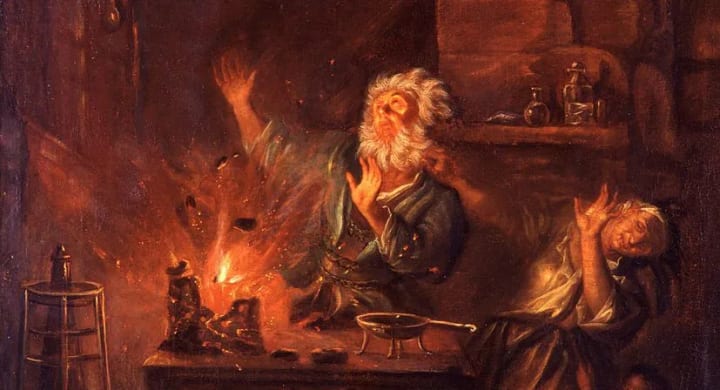
It is said that a princess in England, attracted to alchemy, met an individual who claimed to be able to turn lead into gold. This mysterious philosopher asked for nothing but the necessary materials and time to carry out his plan.
He was taken to the country, where his protector built him a large laboratory and, in order not to be interrupted, forbade anyone to enter it. He built himself a door that revolved on a pivot, so that he could receive the food without seeing, without being seen, and without anyone distracting him.
During the two years he stayed at the castle, he spoke to no one about his work, not even to the princess.
When this was first accepted into the laboratory, he looked with pleasure and wonder at the stills, huge cauldrons, long pipes, forges, furnaces, and three or four huge fires burning in different corners of this Volcano.
The princess looked long at the pale, emaciated, emaciated, and smoky face of the alchemist who told her what he had achieved by his toil. He used language that was difficult to understand. The princess saw or thought she saw, pieces of gold scattered around the laboratory.
The alchemist kept asking for either a new skill or huge amounts of carbon. The princess, with all her enthusiasm, seeing that she had spent a large part of her fortune in providing the philosopher with necessaries, began to be more frugal.
In the two years that had passed, immense quantities of lead had been procured, and nothing but the lead was to be seen.
She confessed her fears to the alchemist, and he told her that he too was surprised at how difficult the work was going, but that he would redouble his efforts and try an experience he thought he could do without.
The alchemist resumed his work. But one day, a terrible cry was heard, followed by an explosion like the boom of a cannon of the highest caliber.
Running with the servants into the lab, they found two broken retorts, a large part of the lab in flames, and the alchemist charred all over.
About the Creator
Viorel Secareanu
I share thoughts on photography and life, mostly lessons learned around things I’ve been dealing with the last few years, managing time, finding focus, and being happy.
Thanks for stopping by. I hope you find something inspiring here!






Comments
There are no comments for this story
Be the first to respond and start the conversation.